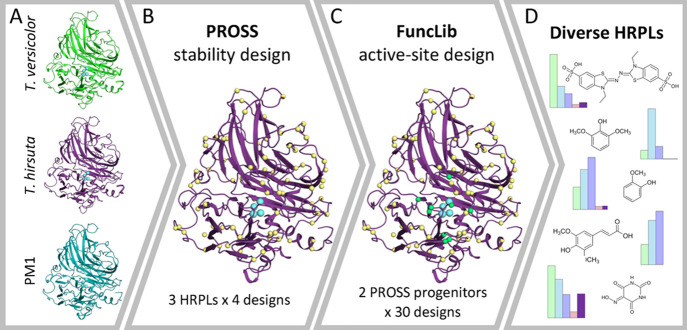Figure 1.
The stabilize-and-diversify strategy. (A) The crystal structures of three HRPLs from Trametes versicolor, Trametes hirsuta, and basidiomycete PM1 (PDB entries 1GYC,273FPX28 and 5ANH,29 respectively) were selected as the starting points for design. (B) First, the three HRPLs were designed for expressibility and stability using PROSS.20 For each wild type protein, four PROSS designs were selected for experimental testing. Copper atoms (cyan) and some PROSS-designed positions (yellow) are indicated in spheres. (C) Two designs with highest activity and stability, one based on the HRPL from Trametes versicolor and the other from Trametes hirsuta, were selected for FuncLib active-site design (green spheres).21 For each PROSS-designed progenitor, 30 designs were selected for experimental screening. (D) FuncLib designs show diverse reactivity profiles. Four designs from Trametes hirsuta (light pink, light purple, light blue, and light green) show dramatic improvements in catalytic efficiency against various HRPL substrates compared to their PROSS progenitor (purple).

